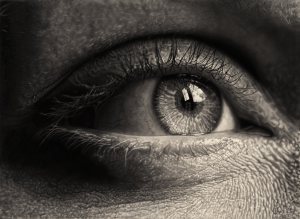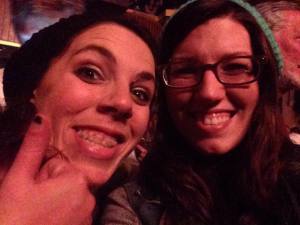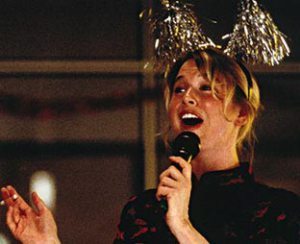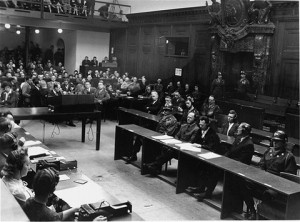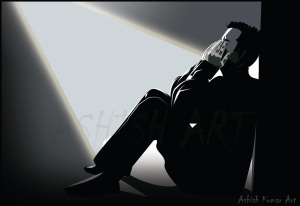Mandi Bean's Blog, page 22
March 24, 2015
On trying not to be ungrateful and having perspective.
“He asked me, ‘How do you keep fighting?’
And the truth is I don’t know
I think it’s funny that he asked me
‘Cause I don’t feel like a fighter lately
I am too unhappy
…
You’d think I’d get perspective
…
Can I not accept that my own problems
Are so small?”
- Amanda Palmer, “Bigger on the Inside”
People probably think there’s someone living on my second floor because I’m far too lazy to climb the stairs and turn off the light. But the truth is that I live alone. I purchased a home independently and for a woman of 26, that’s not too shabby. I know that I should be proud of myself and feel accomplished.
But the truth is that I live alone.
In the novel Frankenstein, the monster admits, “I am malicious because I am miserable.” Conor Oberst expresses a similar sentiment in his song “Lovers Turn Into Monsters” when he writes, “Lovers turn into monsters at the loss of all affection, almost like it was the affection that kept them from being monsters.”
I am alone and miserable, and that makes me malicious, that makes me a monster. Unfortunately, I’m not even a beautiful one. I have the career, the house, the car, and my braces will be removed soon. I’ve published one novel and written my second. But what does that list of achievements really mean at the end of the day if no one else is impressed enough to single me out in a special and unique sort of way? My friend half-heartedly joked that I most likely need therapy because I cannot see, or assess, my self-worth unless it is validated by someone else. That’s weak, isn’t it? Isn’t it cowardly? Should I not be brave or confident enough to be alone, to be by myself, to be with myself? Romantic poets, specifically Wordsworth, talk about “blissful solitude,” which, for me, is a personal oxymoron. Solitude does not make me blissful, but is that because I’m my own worst enemy?
Last night, I ate dinner alone – as I do most nights – seated across from a vase filled with a dying, wilting bouquet. I’ve been trying to convince myself the scene was romantically tragic, like I can wear my loneliness in an ironic, fashionable way, like a worn and frayed denim jacket that’s adorned with many pinks, each one displaying incredibly funny and witty social commentary. Unfortunately, I’m falling short of that mark. I’m more of a sniveling, unsympathetic victim than an alluring, inspiring heroine.
My mother asked, “If you died, who would be affected?” To be fair, we were discussing financial planning and we all laughed because it was only poor phrasing and nothing more, devoid of malicious intent. But man – what a question.
WRITING PROMPT #22: “A couple of goth high school students get busted shoplifting and are sentenced to do community service with Habitat for Humanity.”
To sixteen-year-old Morgan, everything looked like a nail, as she was one hell of a hammer, one that continuously shocked and surprised her mother who was baffled by the complete disappearance of the beautiful baby girl she had once held. The pacifier and dresses with bows and lace gave way to jet black hair and jet black nails and thick, black eyeliner that made Morgan look more bruised and broken than anything else. But Morgan’s mother supposed that was the look Morgan was going for, a tormented soul, as Morgan believed she was victimized and persecuted in only the way that a sixteen-year-old girl can. No one understood Morgan and as a result, everyone was out to get her and no, no one else possibly knew what that was like because Morgan was different; she was special and unique and sensitive and intelligent. For wanting to be accepted while simultaneously being an alternative to everyone else, while complaining about being ignored and not wanting special attention, Morgan could sure pat herself on the back. Morgan blamed those contradictions, and the competitive, capitalistic society that put possessions before people, for her shoplifting spree with Alexis.
Morgan claimed that she and Alexis, her best friend, had tried to steal the designer handbags to be ironic. Morgan asserted that the two girls were making a statement about the dangers of consumerism and the loss of identity, that she had only snatched the purse to transcend the lame chains of the reality that was created by everyone around her except her. Impassioned though her speech was, it was all bullshit, and the juvenile court judge knew it. Consequently, Morgan and Alexis were sentenced to do community service with Habitat for Humanity. And now here she was, hammering nails into boards that created some sort of shell, or foundation, for a home. Morgan assumed the charitable deed should fill her with some kind of positive feeling, but it didn’t. It was a waste of time in Morgan’s opinion. After all, there were murderers and rapists who needed their souls cleansed more than Morgan needed it. The message, the point of it all, was utterly lost on her.
So she let her hammer fall to the ground. Morgan released a heavy sigh.
A moment or two passed and then a handsome man shuffled over, bent to retrieve the hammer from the grass, and handed it back to Morgan. “Here you go,” he said cheerfully.
Reluctantly, Morgan reclaimed the tool. She said, “Thanks.” Her tone was flat and even, nearly dead.
“Having fun?” the man asked, evidently entertained by the complete misery issuing from Morgan.
“That’s rhetorical, right?”
He smiled wider. “Oh, come on; the weather’s amazing, we have air in our lungs, and we’re helping our fellow man. Life is good, is it not?”
Morgan shrugged. “You could argue that we’re perpetuating competitive, capitalistic dogma that decrees my house must be nicer than yours for me to feel complete.”
“Why argue at all?” Morgan only blinked at the man. So, he added, “Besides, we’re not just building a house. We’re providing someone with a home. Don’t cheapen it by claiming materialism.”
“I’m not cheapening anything,” Morgan argued. “This family only thinks they need this house because -”
“What do you know about this family?” the man interrupted.
“What?”
“Tell me; what do you know about this family?”
Sheepishly, Morgan hesitated before she admitted that she knew nothing about the family, not their names, not their background, nothing. Slowly, the man nodded. “This family thinks they need this house because they do. The father, the bread winner, died unexpectedly last year in a car accident, which left the ailing mother to care for five children. I say ‘ailing’ to be polite, but she’s dying. She’s dying of cancer. The youngest is ten and the oldest is 24, so they need somewhere to live when the mother dies in about a month. The oldest needs to house his siblings in an affordable shelter and then, somehow, he needs to figure out how to be an adult, how to be a father and a mother, and he needs to figure out how to be sacrificial without being bitter. He needs to find a healthy balance between being there for them and being here for himself.”
Morgan gulped. She was swallowing her shame. She said, “You’re the oldest.”
The man smiled. “I am. And it’s a beautiful day.” He clapped Morgan on the shoulder and continued on his way, walking back towards where he was helping to assemble the foundation of his future.

February 13, 2015
On bad days and good days, and how they can come one right after the other.
Today is Friday the 13th, a notoriously unlucky day. A coworker was married and kissed his new wife for the first time during the ceremony. I realized that I’ve been chasing the ghost of a good thing and that it is finally time to give up the ghost.
It all started with candy hearts, the chalky kind that no one really enjoys to eat but that everyone loves to read. I put them absolutely everywhere I could, almost as if I thought they were cleverly symbolic of all the real love I had to give. But they ended up in the trash and I was followed the metaphor, I would conclude it was pretty much accurate.
I am going to eat chocolate and drink and sleep until I feel better, or at least become numb to what should be familiar disappointment and terrifying assumptions.
Please excuse the pity party; I am a single woman on Valentine’s Eve. I’m entitled, I believe. And give me some credit for not going to see “Fifty Shades of Grey.” In that sense, I am trying to retain my dignity. But in all sincerity, I suppose that makes me as original and genuine as a cop in a donut shop.
WRITING PROMPT #21: A police detective is assigned to a case involving arson at several Krispy Kreme donut shops.
Mark sat in the cruiser with the blue and red light whirling and twirling above, but the sirens were silent. He had a clipboard perched on his lap with tedious paperwork that he had retreated to fill out. Mark had finished the paperwork some time ago, nearly thirty minutes, but had been extremely hesitant to leave the car.
Walking into any donut shop in a uniform was difficult enough. The trite jokes, snide comments, and sniggers of laughter were irritating and overplayed. However, walking into a donut shop when the uniform was stretched tight around an ever-expanding, rotund middle was proof that God was insensitive and cruel. It didn’t seem to matter that the shop was only so much ash and rubble, the unfortunate victim of an impressively vindictive and awfully clever arsonist. It didn’t matter that Mark was there to investigate and bring about justice in whatever form was most appropriate. All that mattered was that he was a fat cop walking into a donut shop. That kind of material practically wrote itself.
Sighing heavily, Mark tossed the clipboard onto the front passenger seat. He turned his head to look at the scene, milling with onlookers – only a very few were witnesses and even less were helpful – and firefighters and employees. He had absolutely no desire to face any of them. He looked away, across the street to the stores that lined the street. They were still standing, and he caught the reflections of the lights in the storefront windows. He watched the blue and red chase each other round and round for a few moments before his eyes lit on his own reflection.
Sighing heavily, Mark tossed the clipboard onto the front passenger seat. He turned his head to look at the scene, milling with onlookers – only a very few were witnesses and even less were helpful – and firefighters and employees. He had absolutely no desire to face any of them. He looked away, across the street to the stores that lined the street. They were still standing, and he caught the reflections of the lights in the storefront windows. He watched the blue and red chase each other round and round for a few moments before his eyes lit on his own reflection.
An obtuse officer; a portly policeman – Mark could think of a million and one clever ways to describe himself, but such self-deprecating declarations did little to change or even mask the reality. He was unhealthy. He wasn’t appealing. It had been years since any woman had even talked to him, let alone offered him a second glance (even out of sheer pity). He was a living, breathing travesty; he was an awkward and atrocious version of himself that he had never envisioned, never aimed for.
Life was funny that way, he supposed. His bottom lip quivered, threatening tears and wouldn’t that just be the icing on fat boy’s cake if he started sobbing like a little girl in the squad car. He pushed his pudgy fists against his eyes and waited for the tumultuous moment to pass.
A knock on the window snapped Mark out of it. His hands dropped to his lap and there was his partner, bent at the waist to better peer into the cruiser. Mark rolled the window down. “What’s up?” he asked in what he hoped was a casual tone. Would his partner know he had been about to cry, that he was so weak as all that?
“Some guy says he saw some crack head running from the flames with a gas can. Sounds like a promising lead.”
Mark nodded. “Sure does, I’ll be right out.”
His partner nodded and walked away. Mark rolled up the window again.
He wondered how much longer he could stay just where he was without raising suspicion.
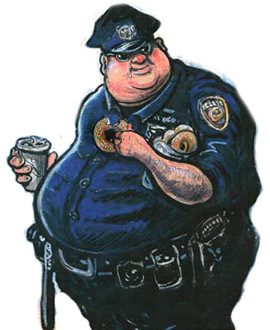

January 19, 2015
On invites to pity parties.
I know that the above song is by Sam Smith, but I feel the need to share my belief that Lana Del Rey is my power animal.
I have a sore on the inside of my left cheek, right near the corner of my lips. The sensitive area keeps getting pierced by my braces and pinched by the rubber bands. Whenever I have a sore in my mouth, I am always reminded of one of my favorite lines from the novel FIGHT CLUB. The narrator compares the character Marla Singer to a small but irritating cut on the roof of one’s mouth that would go away if only he could stop tonguing it. I love that analogy; it’s so original. That’s the kind of woman I aspire to be.
I want to drive west and race the sun, perpetuate daylight and keep the night at bay, to meet the far coast victorious.
I’m on chapter nine of the first draft of my new novel, MOODY BLUE. I should finish before the school year ends. I would love to have some advanced readers to offer some constructive criticism. Anyone interested? Feel free to comment.
I just finished teaching PRIDE & PREJUDICE. I’ve decided that I’m going to learn to play the piano. But then again, maybe it’d be easier to stop being so easily and heavily influenced by historical romances.
WRITING PROMPT #20: “‘Weird little things remind me of her. I don’t even know why. Cabbage, for instance.'”
Danielle dropped her gaze and flicked the cap of the lid on her Styrofoam cup filled with coffee open and shut, open and shut. She was fishing, seeming preoccupied with troubling thoughts and consumed with an overall air of sadness because she wanted Ellen to ask what was wrong. Danielle wanted Ellen to engage her in a discussion about everything that was bothering her in her mediocre life because, in Danielle’s mind, accepting an invitation to a pity party was better than accepting one, no matter how contrived said invitation may be. Ellen understood this about her best friend, and accepted this about her best friend. She took a hearty bite of her blueberry muffin for sustenance and strength, and then she asked, “What’s wrong?”
Danielle shrugged, half-halfheartedly battling against her friend’s inquisition. She still didn’t look up, but refrained from flicking the lid. She said, “Weird little things remind me of her. I don’t even know why. Cabbage, for instance.”
“Bullshit,” Ellen immediately countered, a small smile upon her lips.
Danielle looked scandalized and somewhat offended. “What?”
“I call bullshit,” Ellen patiently repeated. “There’s no way cabbage reminds you of her. Frankie doesn’t even like cabbage. You’re lying because you want to talk about her, but don’t want to admit it because you’re afraid of being label obsessed.”
“Of course I’m not obsessed. Frankie’s my sister, Ellen.”
“I know,” Ellen agreed, “but that doesn’t mean you can’t be obsessed with her. You haven’t been able to speak with her for months. You have all this unresolved anger, unanswered questions and unavoidable guilt for how everything happened and how everything went down. You need to talk about it, but she’s not here, so anyone else will do.” Ellen reached out and tenderly squeezed her friend’s hand. “It’s nothing to be ashamed of. If you want to talk about Frankie, let’s talk about Frankie.”
Danielle colored, blushing with embarrassment from being so easily read. “But aren’t you bored with it? Talking about it gets me nowhere. At least, it hasn’t helped so far.”
“You’re not here to entertain me. Besides, it doesn’t bore me because it matters to you, and that’s all that matters.”
Gratefully, Danielle smiled and rehashed the story about Frankie, her younger sister who was currently in rehab for a number of reasons. She listed all of her sister’s offenses, blindly defended her parents’ actions but openly criticized her own. She was worried, feeling guilty, missing her sister, and all of that was emotionally messy and certainly draining, but it was also all normal. Ellen patiently listened, marveling at how human beings could be so preoccupied with the perception of others that they would deny themselves what they need.

December 29, 2014
On remembering and being thankful.
“Death ends life, not a relationship.”
- Robert Benchley
A beautiful and brilliant man once asked me if I knew what the poet Robert Frost said about life. Embarrassed, I had to admit that no, I did not. He told me that Robert Frost said that it goes on; life goes on. I could only agree because it is a fact and who am I to argue with Robert Frost? The conversation continued as both he and I commiserated about those minor tragedies and somewhat larger frustrations that so often plague humans as time passes and as life goes on. I did not give his words much thought.
Until today.
A year ago today, I wrote a blog post which was viewed over 1,000 times, which seems impressive when one considers my average views rarely top 20. However, that statistic becomes decidedly less impressive when one realizes the views came from mourners and I did nothing creative or noble or bold or entertaining. I lamented the loss of a wonderful woman and inspiring colleague. I am glad, and I supposed I could even say proud, that those words offered comfort and empathy to those who were suffering the pangs of such a shocking and brutal kind of grief. But time steadily marched on, as it always has and always will, and the post, those words were forgotten as acceptance and healing and coping began. I thought about the absence of my colleague nearly every day since then, rubbing the charm on the Alex & Ani bracelets we purchased in memory of her, but the post and what I had written never really crossed my mind.
And that realization particularly strikes me because since her passing, I have been able to understand her in ways I never thought I would, or even could. I now teach in her classroom, two sections of the Honors program she built and perfected. The task is daunting and I constantly worry that I’ll disappoint. There’s always a special kind of pressure for an alumna who returns to her alma mater to teach, and that is excruciatingly increased when that same teacher is asked to fill the shoes of a beloved, intelligent teacher who passed suddenly. On the bad days, when the lesson plan goes awry and I feel stupid and small and incompetent, I sometimes silently curse her because I childishly wish she were still here for the selfish, awful reason of relieving me of a burden. Luckily, those selfish, bad days that I am greatly ashamed of are few and far between.
More often than not, I raise my eyes to the sky and send her a prayer of thanks. This woman, who is no longer with us, is continuing to make her presence felt – is continuing to teach and inspire. This year, I am taxed with teaching works I have not read nor studied, the first of which was Hard Times by Charles Dickens. I should tell you that Charles Dickens was never a favorite of mine. I considered him overrated, tediously verbose and a generally uninspired writer. I shared in my students’ misery as we began to read and analyze the prose together, but then something wonderful happened. We all grew to love the work; our seminars were intellectual and passionate. The students became more cultured with such a staggering work under their belts, and I became a better teacher – I discovered that I could be an example for my students and that I could not groan nor complain when faced with an unfamiliar work, but had to persevere and connect with it to entice myself to analyze and interpret all it had to offer. And I only learned this because my dearly departed colleague added the novel to the curriculum. In true teacher fashion, she challenged a student to rise to the occasion.
Being in her room and sharing some of her experiences, I am seeing life in a new way and for the most part, doing so has made me extremely happy, has made me extremely appreciative and grateful for the opportunity to work in a field which I treasure, and to do so with people who are kind and generous and patient and enjoyable. I am finally beginning to feel more like a woman instead of an insecure teenager who would much rather run into her bedroom and cry into her pillow while blasting melodramatic music when things get rough and the road gets rocky. All of this I owe to Tara Gardner, and so this is not a weepy, “in memorial” piece. This is a thank you letter to a woman who passed a year ago, but whose life was so full and vibrant and inspiring that her legacy is very much alive and those who care to will absolutely benefit from it.
I think back to the beautiful, brilliant man and what he told me. And I suppose that yes, life does go on. But I don’t think it does so thoughtlessly, marching like a cold solider across a barren burning field of battle. Life goes on because it has to, because there are things to be learned, experiences to be valued, love to be lost and won and shared and forgotten, people to hold and scold and remember fondly. And, I think, because those we have loved and lost wouldn’t have it any other way.
Thank you, Tara Gardner. You are loved and missed, but please know that you are still teaching and that you are still doing so with amazing skill.


December 14, 2014
On knowing you’re alive and here for a reason, and knowing that it’s okay not to know why just yet.
It’s been almost two months since the last time I posted an entry. I’m ashamed and feeling guilty about it because I always promised myself that writing – and the promotion of my writing – would be a priority, but here I am, placing it upon a burner far in the back, which may not even light, because I have become consumed with work and its corresponding extracurricular activities. I never thought I would delay a dream for a boring adult responsibility like employment. I never wanted to become boring or sell out. The question then becomes why am I doing it? I think it’s time to completely buck convention and go utterly transcendental. This summer, I plan to walk the entire eastern coast of the state of New Jersey using the East Coast Greenway. I was inspired by Thoreau, Emerson and Cheryl Strayed, author of her memoir Wild, which has been turned into a film of the same name starring Reese Witherspoon. Lately, I’ve been feeling like I need to get away to figure myself out. I became a stranger in the sense that I’ve been letting secondary elements control my emotions and ultimately make my decisions. As a result, I don’t exactly know what I want or who I am, and feeling lost is an awful and terrible feeling. I feel like a phony – like an imitation of an imitation – and I worry those I love and admire are getting sick of my narcissistic shenanigans.
I’ve got to get back to my basics; back to writing.
WRITING PROMPT #19: A man comes to believe that he is an emissary of God when he survives a plane crash in which all other passengers are killed.
Brian Johnson was laying upon a gurney, being rushed along the tarmac to the waiting ambulance. Its back doors were open, and its lights were flashing soundlessly in the frigid crispness of the December evening. Brian saw the distance to the ambulance shorten as he was gently jostled over the smooth pavement, rocked into a soothing kind of trance. He was eager to become numb and absent because after all, it had been one hell of a day. No one wakes up in the morning expecting to be the sole survivor of a plane crash, particularly one that smashes against the ground on the runway of the desired destination, so close to home.
The flight had been en route to Atlantic City, landing at the small airport. Passengers had been composed of family members traveling to reunite with other family members for the impending holiday. Brian had been one of the few singletons, and as such, he had been crammed into a row with a family just trying to survive. Luckily, he had the seat nearest the window. Beside him was a precious and precocious brunette who was about four years old. Next to her was a harried-looking mother with an infant cradled in her arms, and beside the mother was the exhausted father who also cradled an infant in his arms; twins. A small smile twitched Brian’s lips as he observed the family, quiet and tired, not talking to one another, and seemingly blissfully happy to be seated and finally ready to go. The little girl was bouncing a teddy on her knee, singing some nonsense song Brian had once known but had long forgotten upon leaving the playground so many years ago.
Some time after takeoff, Brian had adorned his ear buds, cranked the volume on his iPod, and fallen asleep. He was terrified of flying and only boarded planes when there was absolutely no other alternative, so he only survived when he slept through it. Surviving a flight had taken on a completely different meaning when Brian awoke to terrified screams. His eyes shot open and he savagely ripped the ear buds from his ears. Everything was shaking wildly; it was the worst turbulence Brian had ever experienced. He had only ever seen it in cliched horror films. He was looking this way and that, but found no answers or comfort, only faces grotesquely contorted into unadulterated terror. The oxygen mask suddenly fell before his face and Brian knew this was it. It was all ending and he wasn’t entirely sure how that knowledge made him feel. He turned to the family beside him, saw the mother and father enclose their infant children, and saw the little girl squeezing the teddy, sobbing. Without thinking about it, he encircled her in his arms and felt relieved when her tiny hands grabbed onto the fabric of his shirt.
And that was all he remembered.
Brian regained conscious on the ground. Everything ached and burned, and he only saw things in blurred images. He could smell smoke but he couldn’t hear anything over the sound of his own breathing. For an irrational moment, he wondered if he was under water. His legs and back felt wet, but then there were people standing above him, looking down with shocked faces. He was trying to tell them that he felt weird, and that he couldn’t hear, but they couldn’t seem to hear either. They went about their business as if he wasn’t screaming. He was lifted up and onto the gurney and he was being ushered to the waiting ambulance.
As Brian rolled right along, his head flopped to the side and he saw the sheets, the countless sheets covering the countless, mutilated bodies of his fellow passengers. One such sheet had a charred teddy bear beside it and Brian knew he should be dead. He should have died. But he didn’t, and Brian considered what that might mean. Maybe he had been spared. He thought back to late nights spent with his father on their screened-in back porch, where his father smoked like a chimney and pontificated at length about religion and politics and women and family and life and death and everything in between. He had once told his son that God had a plan for everyone and that everything happened for a reason. His father claimed that’s what the scientists really meant when they insisted that for every action, there was an equal and opposite reaction.
So the plane had gone down, and Brian was still breathing. What was God’s plan? Was Brian supposed to value life in a way he hadn’t? Because to be frank, he thought he had been living life to the fullest and if there was some part of it he wasn’t quite getting, then Brian thought the Big Man didn’t have to be so dramatic; a little subtlety never hurt anyone.
How to explain the dead little girl and the burned teddy bear. What was the rationale behind that? Then again, maybe that was why Brian had been spared, to figure it out. Maybe Brian was supposed to tell the world about the family beside him and their love to the very end and that protective instinct. Maybe such a story would inspire others, give them hope, and help Brian from feeling guilty.
But maybe it was just fucking chaos. Slipping in and out of consciousness, it was hard for Brian to tell.

October 25, 2014
On maybe choosing what is worst and doing it on purpose.
I haven’t written in over a month.
I sincerely apologize. There is no excuse. I have allowed myself to become overwhelmed by work, which in turn has certainly muted the passion and inspiration within. When I leave work, I mostly eat and then sleep. I have not been prioritizing as I should and as a result, I seem to be drowning in paperwork, in responsibilities, and other things that do nothing for my soul. I know I sound like a defeatist, but let me assure you that is not the case. I’m just in somewhat of a slump, but it’ll all turn around.
I’m crediting Gerard Way’s concert on Thursday, October 23rd as the reason for me to begin anticipating the end of my slump. Maybe it was the fact that Melanie and I both decided to wear loose, knit hats and flannel, or maybe it was how amazing Gerard Way was performing, and how he spoke to my very fears and hopes and dreams, or maybe it was just being in New York City, but something about that night changed me, I am sure of it.
WEEKLY WRITING PROMPT #18: “I … love you?”
“I … love you?” she croaked. She had never intended the statement to sound like a question, but she was caught terribly off guard by all of the wide, gawking eyes. She had never intended for this conversation to take place via a microphone in a crowded, dimly lit bar, and surrounded by unsuspecting and incredibly judgmental coworkers. Alcohol was a funny thing, she supposed. It really could make you do and say things you knew would be incredibly mortifying or wildly inappropriate. She didn’t think she had imbibed so much, and had assumed she had been perfectly capable of conducting a rational conversation with the man she had fallen desperately in love with.
It had been doomed from the start, and she would have realized that had she ever stopped to think about it, but she never did because it made her sad, and it made her feel stupid. She didn’t like not knowing things. For example, she’d punch herself in the face – repeatedly, and as hard as she could – if it meant she’d know with absolute certainty whether or not he wanted her in the same way that she wanted him. She would cause bodily harm to both anyone and everyone if it meant she’d find out if he had singled her out for a genuine purpose, or if he had only been lonely and she had been desperate and voila; a friendship had been born out of necessity, rather than authentic affection. On some level, she knew she was probably thinking too much, but the alcohol had cured that, and now it was apparent that she was not thinking at all.
For if she had been thinking, she would never have cajoled the microphone from the karaoke singer, with a smile as greased and manufactured as his hair. Certainly, she would not have cleared her throat to command the attention of the packed room, patrons turning in her direction, sweating drinks in hand. Their faces were patient, polite and interested; they were actually eager to hear her. It was a bold, empowering feeling and she rode that wave of energy like an idiot. Smiling big, like a beautiful, little fool, like an innocent idiot, she stood underneath the hot light, twirling in the dress that was much too fancy for the bar. She was inebriated enough to think she looked gorgeous, which was enough to help her believe that she was also suddenly inexhaustibly charming. She beamed and said, “Hello, hello everyone! If I could just have your attention for just a second, that’d be awesome.” Patiently, she waited until the crowd quieted and heads turned because she thought she could be something cinematic and perfectly romantic, that this drunken moment would be the beginning of everything good. Things like that don’t happen in real life to mousey girls who convince themselves in quiet desperation in a cold bed that they are special and that they’ve been saving themselves for someone truly remarkable. The alcohol had made her forget and so she kept right on talking. “I just wanted to say thank you for coming to the end of the year party, and I hope everyone’s having a great time!” Cheers and catcalls rose from the crowd and she smiled wider. “I would also like to say something to Noah.” She paused to accommodate for the crowd joining her in her search, craning necks this way and that, and turning to one another to audibly whisper and wonder why this stupid fool was looking for someone so strong and handsome and cool. “Noah, are you out there?” she called.
The crowd parted and there he was, Noah. He was embarrassed, never one for the spotlight, so as he walked forward, he kept his face lowered and eyes locked on his feet. She knew his eyes were light and bright, the way the water looks near the shore in the middle of the day, a translucent kind of blue that invites you to run and splash and ruin its tranquility as best you can, but she only knew that because she had stared at them for what seemed like hours on end. He was beautiful and brilliant and brooding and guarded, but he had let her in. That made her somebody. That made her special. She couldn’t lose that feeling no matter what, no matter the cost, the way a drug addict steals from her own mother’s purse to achieve the next fix. She was breathless, watching him walk towards her. He stole a glance as he neared her, his smile fading with uncertainty and it was the way his mouth thinned that made her realize she had been wrong.
This was all a mistake, a terrible mistake. One such as he could never condescend to grace one such as she with love and attention and affection. She had miscalculated, woefully so. And now here they were, in a crowd of friends and strangers alike, with everyone waiting for her to say something. She laughed nervously and croaked, “I…love you?”
Bursts of laughter came from the crowd, with their open mouths and merry faces all blending into one atrocity. Her eyes couldn’t – her eyes wouldn’t focus on the mass of apathetic people before her, but she couldn’t look at him. If she did, she would throw up and that was probably the only thing that could make everything worse. She dropped the microphone and took off, slamming against Noah’s shoulder but not mumbling an apology, only running and running until she get to a far enough corner where she could hail a cab in anonymity, tail between her legs.


September 7, 2014
On horrible realizations.
A new academic year has started, but I am mostly unsure as to how this makes me feel. I’m excited for the return to normalcy and to see coworkers and students on a regular basis. However, I am sure I will miss lounging and will soon loathe the stress the school year inevitably brings. However, my friend is reading a book all about mind set, which emphasizes the axiom that life is 10% what happens to an individual, and 90% how the individual reacts to events and circumstances and whatnot. I’ve been a notoriously awful “over-reactor.” Perhaps a resolution for the academic year should be to stay positive and patient.
WEEKLY WRITING PROMPT #18: “A lawyer discovers that his client is guilty of the horrible crime for which he was just found innocent.”
Eliot Edwards (there was always something inherently to be respected about a man with two first names) rose beside his client as the honorable judge had instructed, as both men prepared for the verdict. Eliot was cool, calm, and collected; his breath did not hitch as it entered and exited the two air sacks called lungs. His hands did not tremble as he loosely clasped them in front. He looked poised and professional, just as he always did. Remarkably, the same could be said of the man beside, the supposed delinquent known as Harvey Miller. For just about a month, Eliot and Harvey had been seated behind an elongated wooden table, listening to eyewitness testimony, and the coroner’s findings, and statements from detectives that seemed to prove that Harvey had brutally raped and then murdered four-year-old Lindsey Morris. The state would have a member of the jury believe that Harvey pulled alongside the little girl’s front yard in his work van, casually rolled down the window, and called out her. Merrily, happily, the beautiful, innocent girl skipped over and politely listened as Harvey explained that he was lost, and that his poor, poor puppy in the back was sick and needed a doctor and special medicine. In her opening statement, the prosecutor took care to meticulously describe the way the little girl’s face most likely trembled with concern for the puppy and was consumed with an overwhelming – and irresponsible – desire to help. Willingly, with minimal coercing because Lindsey came from a nice neighborhood with respectable, hard-working families living and loving in modest ranch-style homes, she would have climbed inside. Most likely, she jabbered somewhat incoherently to Harvey, asking about the puppy and what was wrong and where he was from and what kind of car she was in. As a result, Lindsey would have been woefully unprepared when she was led into the woods, holding onto a hand for comfort and reassurance and safety, knocked down, stripped and violated.
It was an unspeakable crime, and thinking over the lurid details often turned Eliot’s stomach. He would look at Harvey, try to bore into the other man’s soul, to evaluate whether or not he was truly guilty. Eliot didn’t think any human being could be capable of such apathy, of such inhumanity, but these things happened. Harvey wasn’t overly altruistic, but he wasn’t irrational or unkempt or anything like a madman. He seemed normal and even-keeled. Sure, he had some dark moments in his past – an aggressive and physical altercation with his high school principal, and questionable accusations from several ex-girlfriends – but nothing that would precede such monstrosity as the rape and murder of an innocent child. Eliot would not invite Harvey out for drinks or into his home, but a slightly uneasy feeling did not make someone guilty of murder.
As Harvey and Eliot stood, awaiting Harvey’s fate, Eliot felt fairly confident the jury would agree. Most of the evidence had been circumstantial and there was no DNA evidence to speak of. Granted Harvey had not been able to provide an airtight alibi for afternoon and evening in question, but the defense readily admitted Harvey was no saint and liked to tip the bottle back more of than not. As such, memory lapses were common. The jury foreman began reading the verdict sheet and Eliot knew his mind should be in the present, willing the juror to say “not guilty,” but he was troubled by a fact which had troubled just about everyone else involved in the case, cop and victim and lawyer alike. Despite a thorough canvas of the crime scene and sweep of Harvey’s van and essentially ransacking Lindsey’s home, no one had been able to find her beloved turtle pin. Lindsey had received the pin from her oldest brother, and he had bought it especially for Lindsey from the zoo during a class trip. Lindsey was never without the pin – even wore it to bed when her mother’s typically watchful eye missed it. Everyone believed whoever had the pin now must be the murderer, keeping it as a sick memento. The pin seemed to be the key to the case and –
“…find the defendant not guilty,” the foreman read. Eliot snapped to attention as Harvey clapped him heartily on the shoulder. Eliot smiled and turned to shake Harvey’s hand. Those behind them, and on the other side of the courtroom, dissolved into weeping and wailing. They were family members of Lindsey, devastated by the outcome because they had all been so sure of Harvey’s guilt. Eliot felt for them and his eyes ran over their downturned faces, their red-rimmed eyes, and their expressions of misery. Eliot’s smile diminished. He released Harvey’s hand so he could turn to hug his mother, the only supporter of Harvey’s, present for every single day of testimony. She threw her beefy arms around her boy and Harvey was nearly being pulled over the wooden, glossy barricade that separated the audience from the members of the judicial process. Harvey was pulled onto his tippy toes and with his body elongated, and bent at a rather awkward angle, the pocket of his button-down Oxford shirt hung low so that the tiny metallic object that had been residing within clamored to the tile floor.
Eliot saw it fall out of the corner of his eye. He did not know what it was, but bent to retrieve it. As he did so, he noticed it was a pin in the shape of the turtle.
All the wind seemed to be knocked from him. Eliot dropped to his knees, breathing deeply through his nose to keep from vomiting. He could feel eyes upon him, knew instinctively the eyes belonged to Harvey, and was suddenly terrified.
Eliot Edwards had sent a depraved lunatic free.


August 5, 2014
On changing names.
I’ve been having trouble sleeping lately. I wonder if I’ve been struck with that “Summertime Sadness.” It is now August, and my dreams have included school more and more, so maybe it is simply anxiety stemming from the upcoming school year. I should try and refocus it into excitement, into positive energy.
There are so many things I’ll never tell the object of my affection so this person will never know, like how many chocolate donuts I’ve devoured to compensate for his absence. I think he’s the kind of man who never has to drink alone.
I love how, in movies, you can always tell which couples are going to form based on who watches who walk away, especially after a seemingly irrelevant conversation.
WEEKLY WRITING PROMPT #17: “I love the way she says words that begin with ‘cr,’ like ‘crisp’ and ‘crunchy.’ How bizarre is that?”
Ally had the shopping list in hand and was intently focused on securing the various items. She was expertly maneuvering her way down the aisles with Michelle in tow. Michelle had only agreed to come because she was sick of sitting at home alone with a severe case of writer’s block. She thought getting out and about among people would be inspirational, and she thought bouncing ideas off of Ally, her best friend, would be beneficial. After the supermarket, they would go back to Ally’s apartment, drink some wine, devour some pasta, watch some bad television, and have themselves a relatively unproductive but enjoyable weekday. They tried to do this every so often to maintain the friendship among differing schedules and ambitions and so far, it had been a success.
Part of the success, or most of the success actually, could be attributed to the level of comfort between the two women. For example, Michelle knew Ally was only half listening as she scoured the shelves for what she needed, and Michelle kept talking anyway. She was eager to work out some tricky dialogue between the romantic leads in her latest literary endeavor. “So,” Michelle began, resting her elbows on the handle of the shopping cart and propelling it forward in the laziest of ways, “I wanted him to say something super specific but still adorable to show how much he likes her. Only he wouldn’t be talking to her, he’d be talking a friend.”
“Uh huh,” Ally said. She wasn’t listening. She was trying to decide between vermicelli and angel hair pasta.
“Like, he’ll say … I don’t know, something like, ‘I love the way she says words that begin with “cr,” like “crisp” and “crunchy.” How bizarre is that?’”
“Very bizarre,” Ally answered.
Michelle sighed. “No, you’re not supposed to answer. That’s the dialogue.”
Ally turned to her friend, a box of pasta in each hand. “But that’s stupid.”
“Well, don’t hold back, Ally. Tell me how you really feel.”
Rolling her eyes, Ally turned back to the many, many boxes of pasta neatly stacked on the shelves before her. “A guy would never say that. A guy would never notice that.” She put one of the boxes back on the shelf, and stooped to examine another. “Unless she just got braces or something. Does she have braces?” She turned to her friend, suspicion and skepticism obvious in her expression. “Are you writing about yourself again?”
Michelle self-consciously placed her hand over her mouth. The braces had ceramic brackets so it was nearly impossible to tell Michelle had braces until the onlooker got really close, like all up in her grill as it were, but she still blushed whenever they were mentioned. “No,” she proclaimed defensively. “I think you’re being close-minded. I, for one, think a guy would totally say that.”
“How often does one even use ‘crisp’ and ‘crunchy’ in regular conversation?” Ally asked. She paused to think for a moment. “Great; now I want potato chips.” She completed an about face and headed toward the aisle with all the snacks; the chips, the crackers, and the cookies. Michelle hurried after her, nearly running over some small, silver-haired ladies mulling over the canned soups.
“That’s the point, though. I want it to be singular and memorable. This will be the romantic quote my female audience will swoon over, you know?”
Ally threw two bags of potato chips into the basket of the shopping cart. “I don’t know if it’s authentic. I think you should ask someone.”
“What?”
“Let’s find a dude, and you can ask him if he would ever say that.”
Michelle paled. She was definitely more of an introvert than an extrovert, and the thought of stopping some stranger and asking him if he could possibly emulate a character seemed absurd. The man who they stopped would probably be a Neanderthal of sorts, nothing like the wonderful invention of a man Michelle had imagined. She would lose undoubtedly. “That’s a dumb idea.”
“You’re just afraid of talking to people.” Ally was abrasive and logical, which was completely unlike her best friend and most likely why they got along so well. She looked up and down the aisle and smiled. There was a handsome employee about their age at the far end, mindlessly stocking twelve packs of soda cans. His muscular arms moved gracefully, and Ally took note of that, as well as his dark hair. “C’mon; we’ll ask tall, dark and handsome over there.”
Michelle tried to discreetly sneak a peek. He was definitely handsome, but he really wasn’t all that tall, and his hair was dark but truth be told, his skin was actually pale. Michelle leaned close to Ally. “No, no way. He doesn’t read. He’s not a good person to ask. Let’s just go.”
“Oh, stop it,” Ally commanded and grabbed Michelle’s hand. She literally pulled her down the aisle while Michelle mumbled a million different protestations. They all fell on deaf ears and Michelle clammed up once they halted behind the employee, their backs against rows of pretzels. “Excuse me,” Ally called politely.
The employee turned and upon seeing it was two young women instead of the usual seniors who argued about coupons and prices with him even though he was not a cashier, he smiled brightly. “Hello; can I help you?”
“Yes,” Ally smiled. “My name is Ally, and this is my friend, Michelle. What’s your name?”
“I’m Justin,” he said. He held out his hand. Michelle and Ally shook his hand in turn, and everyone agreed that it was a pleasure to meet. “What can I help you with?”
“My friend Michelle here is a writer –“
“Really?” Justin interrupted.
“Really, really,” Ally confirmed and was incredibly proud of her friend. Michelle blushed and looked down at her feet. “She had a book published about two years ago and is currently working on her second.”
“Oh, yeah?” Justin leaned back against the shelves he had been working to fill and crossed his muscular arms over his firm chest. He was interested and was settling in to enjoy the conversation. “What’s this book about?”
“Well, here’s the thing – she doesn’t want to give too much away because the project is still in development and whatnot, but she’s trying to work out some dialogue. She ran an idea by me but really, it needs a masculine touch.”
Justin smiled. “Okay; shoot.”
Ally turned to Michelle, who was still not looking up and who was still not talking. She waited for her friend to man up, to say something – anything – but the silence was becoming awkward and Michelle was making an absolute fool of herself, so Ally intervened. “Well, she wants this male character to say something unique and romantic, something totally quotable. She came up with a line about how he likes the way she says words like ‘crisp’ and ‘crunchy.’ Would a guy ever notice that?”
Justin looked off to the side, thinking the question over seriously. Ally watched him with patient eyes, while Michelle only stole furtive glances spasmodically and sporadically. Michelle thought him handsome and despite thinking Ally was full of shit and only liked to torture her, she was still interested in his response. When Justin turned back to the pair, he caught Michelle looking at him. They made eye contact and he grinned. “I think it’s possible, sure, if the guy’s name starts with the same sound, like if it’s a Chris. Is his name Chris?”
Ally turned expectantly to Michelle. She shook her head.
“Oh,” Justin said and he seemed disappointed. “Well, maybe you should change the words, then, to match the guy’s name. I think every guy loves the way his girl says his name, and not just while they’re doing it. Guys like the way their girls laugh, too.”
Ally smiled. “Well, thank you, Justin. You’ve been very helpful.”
“You’re welcome,” Justin said. He turned from Ally to Michelle. He was smiling. Michelle was only staring. The awkwardness was building and fast.
“Well, okay then. We’ve got to get going,” Ally said, leading Michelle back to the shopping cart the same way she had dragged her to Justin. Justin watched them go.


July 29, 2014
On admiration and remorse.
I’m having trouble finishing the margarita my mother made me.
I still haven’t closed on the house I am eager to buy, but I have not lost hope. If I could be patient, which is admittedly a virtue I most certainly lack, then I could see the process through. I long to stamp my feet and pout like a petulant child until I get my way, which is silly for any number of reasons, but mostly because it would not work.
An independent company specializing in literary marketing contacted me via my author page on Facebook. The pricing seems rather steep, so I am going to do some more research. I hope to find similar companies and what services they offer for what prices. I need to market my book if I hope to get anywhere. I was banking on an agent to do that, but that search has been difficult and disappointing. Again, I truly need patience. I find some solace in reminding myself that I am not the only twenty-something (soon to be closer to thirty than not) who has an imagined pendulum swinging above her head, wanting to have so many things before an invented age for reasons she cannot articulate. Such is life.
The novel is coming along, but at a painfully slow rate … unless that is impatience, striking again.
WEEKLY WRITING PROMPT #16: “A con man starts to admire the achievements of the man he is impersonating.”
Larry sat at the end of the bar that was farthest from the door. The place was dark and cool, and Larry found sitting as far away from the entrance as possible, what with its sporadic bursts of garish sunlight and random gusts of stifling summer heat, kept the establishment as poorly lit and properly air conditioned as most patrons preferred. However, the bar was lacking in patrons at this particular moment, and Larry attributed the absence of alcoholics in varying stages of addiction to the time. Truth be told, it was rather early to be enjoying liquor – at least in public – well before the social norm of five o’clock. But Larry didn’t really give a shit because Larry had endured one hell of a day. He downed the shot of whiskey before him, shuddered, and ordered another.
Technically, Larry was unemployed, but that didn’t mean he didn’t make a living. To the casual passerby, Larry seemed to be a legitimate businessman of sorts. He had the right kind of shiny shoes that looked terribly expensive even though they weren’t. Larry’s pants were meticulously iron and pressed, and kept painstakingly neat so that they were much more impressive than the tags would have the observer believe. Larry’s shirt was plain, just an average button-down with a muted sort of pattern made from a heavy kind of fabric. It was uncomfortable and caused Larry to sweat no matter the temperature. So while each element of Larry’s outfit was subpar, the sum of its parts was enough to impress but not intimidate. Larry looked official yet inconsequential; he was forgettable and that was the point. In Larry’s particular line of work, it was best to blend in, to claim a sort of camouflage among the general public. Larry was an identity thief, and he was damn good at it.
Larry hadn’t worked “on the books” in quite some time. When he was strapped for cash, or forced to lay low, he always managed to pick up odd jobs. With his seemingly limitless set of skills, good looks, winning personality, and luck, he had been living comfortably, even leisurely, for years. Larry had managed to be so comfortable because he shunned guilt and lived by the rules of apathy. He never thought about the people he impersonated and stole from, and only imagined them as fictional roles. Larry was a nice guy – a good guy, even – so there was no possible way he ruined lives, engineered poverty, or tore families apart. Honestly, how could the actions of one lazy, simple man such as Larry, drag someone kicking and screaming back to that proverbial square one, forcing him to start all over and begin again, work twice as hard only to get back to where he was? Larry was not so destructive, not such a monster. He was just a thief and besides, there was more to life than money and possessions, right? Everyone loved to preach about a life of substance. Sometimes, especially when drunk, Larry could convince himself he was actually aiding those he robbed blind, forcing them to experience the spiritual truth that life goes on regardless of what one had in the bank. Unfortunately for Larry, he wasn’t as inebriated as he needed to be and he had realized only a few hours earlier that he was miserable little shit, a parasitic being who had nothing to offer anyone and would die alone; he would leave this world without anyone to noticing, let alone mourning.
Larry had never been one for enduring an existential crisis of any kind. He assumed he lacked the emotional intelligence for such self-engineered disaster and misery because, given the choice, Larry would do just about anything other than sit and think. He was only participating in the activity now because of Ryan Schmuacher, the identity he was currently employing. Larry had only chosen to become Ryan because of his impressive credit score and substantial amount of money in the bank. He would use both assets to obtain a credit card, replenish the wardrobe, and then take a trip (standard operating procedure at the end of a job because it was best to cut and run before anyone got wise enough to start looking). Larry used a very special, and very illegal, type of software to hack into websites that promised free credit scores for such valuable information and he always followed that internet search up with another one – simply entering the name into a search engine and perusing through whatever materialized on the screen. He had done this a thousand times and never had such a search given him such pause, such hesitation, such … remorse.
Ryan Schumacher had been born into a less than wealthy family in some small, Southern town that become the picturesque setting for dumb oil paintings featuring snow covered barns that sold like hot cakes during the holiday season. His parents had sacrificed everything to help Ryan afford medical school, where he excelled. He specialized in pediatric oncology – kid cancer. He forwent the bar scene, the hookup culture, the flashy cars and exotic trips, to try and save the lives of little dudes and dudettes who were truly innocent victims, who had done absolutely nothing to force their own bodies to betray them, cutting themselves down before their prime. It was a truly selfless vocation, something to admire, and the picture of Dr. Schumacher with a two-year-old boy, smiling despite the chemotherapy treatments and all its devastating side effects, had impacted Larry. He hadn’t been able to erase the vision from his mind, hadn’t been able to lift a single penny from Dr. Schumacher’s account. Larry took everything from everyone to benefit himself and it knocked him on his ass to finally and truly realize that there were people on the planet that gave everything to everyone to benefit everyone.
Larry drained the second shot of whiskey, shuddered, and ordered another. He missed the bartender’s apprehensive gaze because he covered his miserable face with trembling, selfish hands and pondered his life. What had it all been for? What difference had he made? Was it too late?


July 11, 2014
On nasty surprises.
It has been just about two months since I last posted. I am ashamed to admit that I let life get in the way. The school year got the best of me – a clear indication my priorities were shuffled and rearranged about a thousand times. I thought I fell in love, but thinking about it only makes me feel small, sad, and stupid, so I’ve now come to the realization that it wasn’t love. I have yet to determine what it was, but it’s over now, and I don’t think I’m a better person because of it.
But I have been writing. I am three chapters into the new novel. I have a short story to share with you all as part of my “weekly” writing prompts. My contract with Martin Sisters Publishing will expire next year, so I have begun the search for a literary agent.
I am hoping to close on a home of my own at the end of this month.
There is good, and there has been bad, and in this exact moment, I find it difficult to describe exactly how I feel, but maybe that’s okay. We’re all entitled to feel numb and completely apathetic now and again, aren’t we? I think it’s a coping mechanism or, even worse, a defense mechanism of sorts. I don’t know why I’m feeling so pensive or cynical. Maybe I’m simply hormonal? Maybe it has something to do with the heartache I alluded to? Maybe it’s the dark direction I steered my short story in? Maybe I simply spend too much time alone? Whatever the reason, I apologize. And I also sincerely hope you enjoy this week’s writing prompt.
WEEKLY WRITING PROMPT #15: “A mother discovers a feminine collection while cleaning her son’s bedroom.”
“What an idiot! How could that not have sent up a red flag?” Kelly McCarthy asked no one in particular. The question had to be rhetorical since she was sitting alone on the slightly worn – but still perfectly comfortable – couch in the living room of the home she shared with her small, loving family. She was mindlessly eating some low fat, low calorie, low carb potato chips (but all the health benefits meant nothing when she was likely to eat the whole damn bag in one sitting) while watching her favorite true crime documentary channel. Currently, the channel was airing some cleverly named show – with an alliterative title, most likely – about handsome boyfriends and husbands who were not who they said they were. This lady had married this good-looking fella after only a few months and found herself bruised and abandoned and robbed. Sympathy was hard to come by, however, because if this female had thought clearly and not been blinded by a strong jawline, she would have seen through the obvious fabrications and been alarmed by some universally troubling behavior. These women were not like the sudden rash of young girls that were missing – some had been found but all who had been found were already dead – in a city farther north than the one she called home. Those girls were too young to be anything other than naïve and innocent. How could someone who had not even graduated high school know better, let alone really know anything about anything? No, these women, these suckers, had no one but themselves to blame. Kelly was shaking her head, feeling pity but mostly disbelief and borderline disdain, when the dryer’s buzzer sounded loudly throughout the one-story, ranch-style home.
Reluctantly, Kelly peeled herself from the overstuffed cushions and shuffled her slipper-covered feet through the kitchen and into the cramped laundry room. She listened to the textured bottom of the slippers scuff against the vinyl tiles that floored the kitchen, and she listened to the buzzing of the dryer now only a step away, but other than the low and constant humming of the television, there were no other sounds. Kelly found herself home alone, as she usually did in the middle of the day throughout the week. Her husband, Charlie, battled a sizeable commute to the northern part of the state and her son, Joey, was a sophomore at the high school, and though he was scheduled to come home early in the afternoons, around 2:00 PM, Joey never usually showed up until dinner time. He was always busy with some kind of extracurricular activity and Kelly couldn’t be any prouder. He was so popular and studious. Over dinner, Joey always regaled his parents with stories of the humorous antics of juveniles and how Joey was truly an asset to the school community. A smile formed on Kelly’s lips of her own accord as she thought of her son, her only child, her pride and joy.
It was a load of his clothes that had just been dried and were now patiently waiting to be folded and placed back in the drawers, or hung in the closet. Typically, Kelly did not do her son’s laundry – he was nearly sixteen years old – but she had felt particularly generous this idle, random day and for no reason that she would ever be able to articulate. Later on, Kelly would wish she hadn’t felt so – she would even raise red-rimmed eyes to heaven and demand of whatever God resided beyond the clouds why He had blindsided her with such terror and tragedy. But before that moment, everything was normal and just as it should be.
She shoveled the random assortment of shirts and pants and socks and underwear into an empty laundry basket and trudged down the long hallway to her son’s bedroom. It was the last bedroom on the right and its door was marked by a single poster, perfectly centered. The poster advertised a poetry festival in a metropolis near her husband’s work in the northern part of the state. Joey was such an intelligent, well-mannered boy. He wasn’t like all those other boys his age, who were loud and aggressive and obnoxious and obsessed with their penises. He was quiet and patient and obedient and enjoyed females, but not to the point where it consumed him. He was balanced and healthy and beautiful and whole. Again, Kelly caught herself nearly beaming when thinking of her baby boy. She balanced the laundry basket on her particularly bony hip and turned the doorknob.
The door was locked. That was odd. Joey’s door was never locked.
Kelly placed the laundry basket on the floor and ran her hand along the molding that ran along the top of the doorway. She was waiting to feel cool metal beneath her fingertips; the key to her son’s room. She found it and unlocked the door, and pushed it wide open so she could traverse through the doorway with the laundry basket. Her slippers shushed against the plush carpet and she gladly tossed the laundry basket on the bed, careful not to upend it of its contents. It bounced jovially once or twice before rocking itself right. Kelly walked to the dresser directly opposite the meticulously made bed. She had developed the tactical plan of putting away the socks and underwear first because that would be easiest – Joey just tossed them in the top drawer of the dresser. The pants and shirts would be decidedly more difficult as Joey had a system in place that Kelly had yet to decode. A giggle tumbled from her mouth; how funny for Joey to be so organized. She wondered where in his lineage she could attribute the trait, as both her and Charlie were both hopelessly sloppy.
When she pulled open the uppermost drawer, a sound she had not been expecting met her ears. Kelly distinctly heard something substantial sliding forward with the movement of the drawer. It wasn’t the soft whisper of fabric, but something heavier. Kelly pulled the drawer out as far as it could go without making it tumble to floor. She looked within and she found a rather extensive collection of jewelry. There were necklaces and bracelets and long, dangling earrings that younger girls would wear – colorful, gaudy, attention-getting. Icy apprehension flooded Kelly’s stomach like the waters would a sinking ship because Joey did not have a girlfriend – not one that he ever mentioned, anyway. Besides, there were too many pieces for one girl and there was no consistency in taste or style. Kelly was under the impression that the jewelry had belonged to many different girls with unique and wonderful personalities, just as varied as the necklaces and bracelets and earrings. Why would Joey have such things hidden among his undergarments? And why was his door locked? And if he had a girlfriend, why didn’t she know anything about it? Why would Joey be keeping secrets?
Whoa – Kelly stopped herself. She stepped back from the drawer and shook her head, but still, she couldn’t shake the feeling that something was wrong, terribly wrong. Maybe it was all the reality crime television she had been ingesting lately. That was all – she had simply seen too many shows about serial killers who were meticulous, guarded, and kept mementos of their poor, tortured victims, such as jewelry. She brought a trembling hand to her mouth and slowly shook her head back and forth again. Joey wouldn’t do anything wrong. Joey wouldn’t harm a fly, not Joey, no, no, no.
Her eyes slipped to the closet. Snooping would only end in heartbreak and pain, as did it for all mothers who found more than they bargained for in the bedrooms of their children (pornography, cigarettes, marijuana, naked selfies, etc.). But Kelly now needed to snoop for exoneration. She needed to clear her son whom she had already condemned. She moved to the closet door and slide the nearest door open. It creaked unsteadily along the track, and Kelly’s eyes fell to the floor. Joey’s shoes – so clean, so clean – were in neat and even rows. Sneakers, boots, shoes for church; there was a place for everything and everything was in its place.
So what was the deal with the duffle bag thrown carelessly into the corner and out of sight? Unless, of course, someone was looking for just such a suspicious detail as Kelly was. Slowly, shaking, she dropped to her knees and reached into the dark recess of the closet. She pulled the bag, scratching the vinyl with her nails and sending chills up and down her spine. Breath moved in and out of its own volition, but it did not seem to be all that willing. The necessary oxygen came in jerky spurts and Kelly feared she would hyperventilate and pass out. What if Joey came home and found her like this? What would he think? What would she say? Kelly inhaled, exhaled, and unzipped the bag.
There were dark colored sweatpants with a dark colored sweatshirt, rope, gloves, and the light reflecting off of something metallic and sharp – a knife. Kelly screamed and threw the bag from her. She scrambled back against the bed and slumped into a seated position. This didn’t make sense, couldn’t add up to what she was assuming. No, those girls were missing from up north, from where Charlie worked. Why would Joey ….
Joey had taken an interest lately, hadn’t he? Joey traveled up to work with his father whenever he could, whenever Charlie offered. That wasn’t often enough, though. Not to commit murder – surely not! Joey would have to go up after school, take public transportation, and he couldn’t. Well, Kelly supposed he could, but he wouldn’t. After all, he had all those obligations which he never gave specific details about and which never culminated into something tangible, even something as simple as a telephone call from a club advisor or certificate of participation with the principal’s rubber stamp.
What the hell was going on here?




